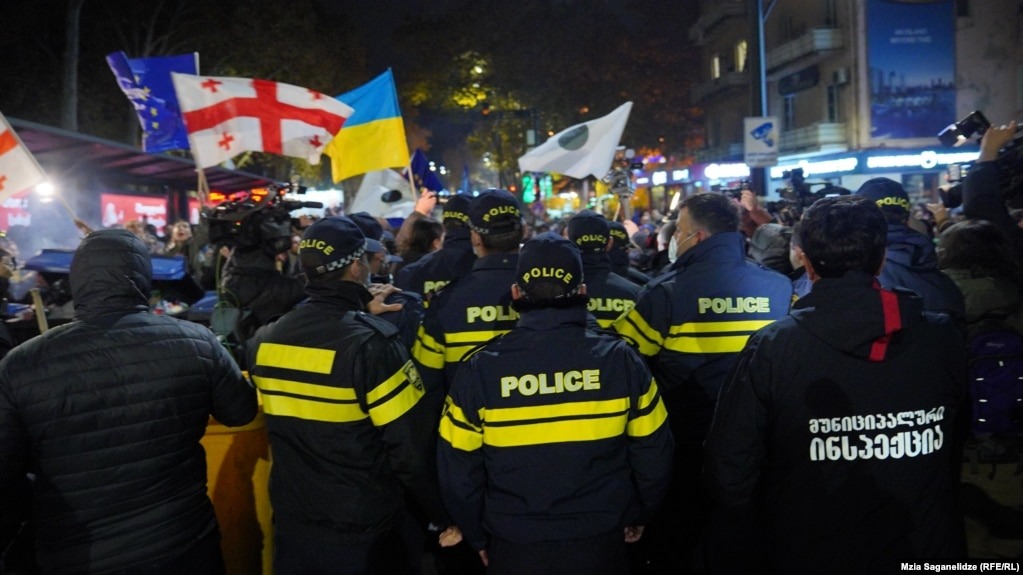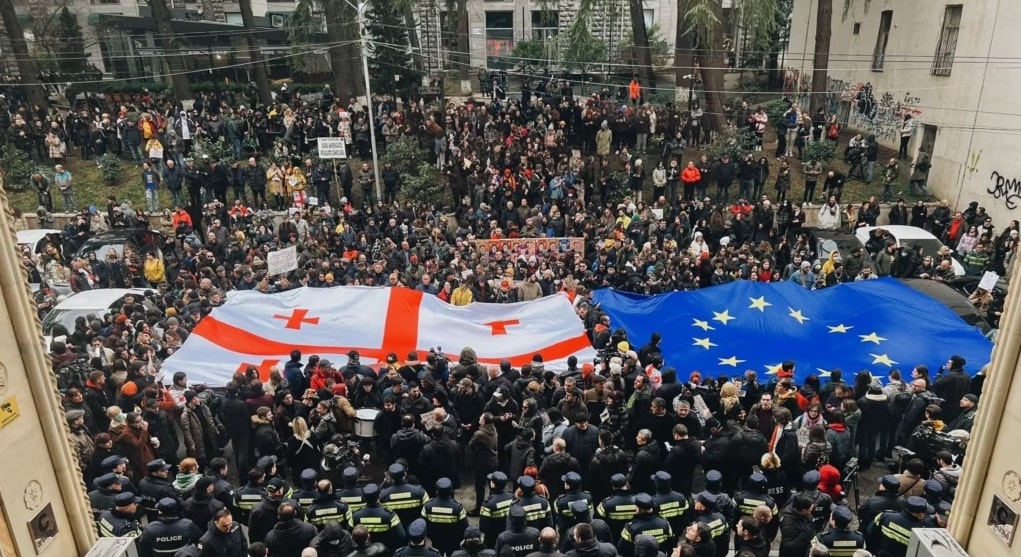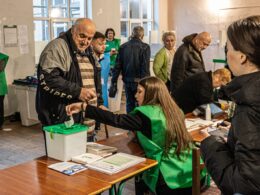Former Foreign Minister Dmytro Kuleba says the Georgian government’s actions to suppress a peaceful protest against the refusal to negotiate with the EU on its accession to the bloc mirror Ukraine's scenario under former Ukrainian president Victor Yanukovych in 2013, according to UkrInform.
On 29 November, violent clashes broke out in Tbilisi as police used water cannons, tear gas, and pepper spray to break up demonstrations against the government's decision to suspend negotiations for EU accession until 2028. Thousands of protesters had gathered outside the parliament building, expressing their anger over what they viewed as a betrayal of Georgia's pro-European aspirations and a significant shift towards Russian influence. The protests reflected a struggle for democratic governance and alignment with European values.
Kuleba said that the Georgian government has been covering its creeping concessions to Russia with promises to avoid the so-called “Ukrainian scenario,” referring to Russia’s all-out war against Ukraine.
“Unfortunately, what we are witnessing in Georgia today is precisely the Ukrainian scenario, but of a different kind. Georgia in November 2024 is a mirror of Ukraine in November 2013. Ivanishvili, like Yanukovych before him, is playing the same game,” the former minister noted.
He reminded that 11 years ago, in November 2013, Ukraine saw the beginning of the Revolution of Dignity when Yanukovych announced that he would not sign the Association Agreement with the EU, sparking protests across the country. Ukrainians rose up, refusing to be deprived of their freedom, and their struggle changed the course of history.
“The current scenario for Georgia is clear: first, they take away your freedom, then they start beating you, next, prosperity disappears, and finally, Russia swallows you,” wrote Kuleba.
Addressing those who took to the streets in Tbilisi, he emphasized that their struggle today is “about more than being pro-European or pro-Russian; it’s about the fundamental right to live freely.”
“You are a proud nation. Fight and win — do not let them steal your future,” Kuleba urged.
Earlier, Georgian Prime Minister Irakli Kobakhidze announced that Georgia would refuse negotiations on EU membership until 2028. Following Kobakhidze’s statement, a protest rally gathered in Tbilisi on the evening of 28 November. However, special forces dispersed the peaceful protesters using water cannons and tear gas.
According to Georgia’s Ministry of Internal Affairs, 43 protesters were detained. At least ten journalists were injured during the police crackdown.
Georgia’s President Salome Zurabishvili called the detentions of protesters “Russian methods.”
Read more:
- Georgian businesses, diplomats, universities launch strikes after crackdown on pro-EU protesters
- Pro-Russian party cements victory. Can Georgia’s revolution succeed?
- Georgian authorities remove opposition protest camp amid election result disputes
- Georgia erupts as president slams Russia’s grip on disputed vote




